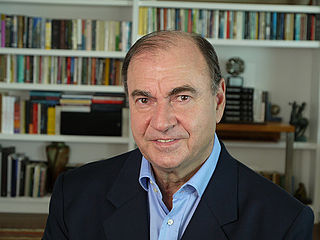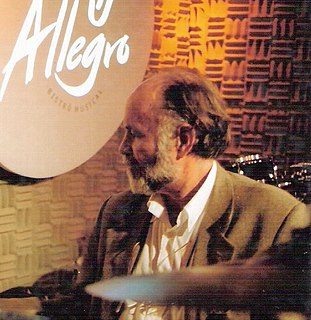
Luiz Eduardo Soares (born March 12, 1954 in Nova Friburgo, Rio de Janeiro), is a Brazilian anthropologist, philosopher and political scientist.

Luiz Eduardo Soares (born March 12, 1954 in Nova Friburgo, Rio de Janeiro), is a Brazilian anthropologist, philosopher and political scientist.
Between 1999 and 2000, Soares coordinated the department of public safety in Rio de Janeiro. Between January and October, 2003, he was the National Secretary of Public Security. Currently, he occupies the post of Secretary of Municipal Valuation of Life and Prevention of Violence at Nova Iguacu (RJ). He is a professor at ESPM (School of Advertising and Marketing) in Rio de Janeiro.
He was also a professor at UERJ, Iuperj, Ucam and Unicamp, researcher at the ISER and at the Vera Institute of Justice, New York City and a visiting professor at Columbia University, University of Virginia and University of Pittsburgh.
| This biography of a Brazilian philosopher is a stub. You can help Wikipedia by expanding it. |

Francisco "Chico" Buarque de Hollanda, popularly known simply as Chico Buarque is a Brazilian singer-songwriter, guitarist, composer, playwright, writer and poet. He is best known for his music, which often includes social, economic and cultural commentary on Brazil.

Cesar Epitácio Maia is a Brazilian politician, notable for having been elected three times for mayor of Rio de Janeiro.

The Archdiocese of São Sebastião do Rio de Janeiro in Brazil was established as a territorial prelature on July 19, 1575. It was elevated to the status of a diocese on November 16, 1676. It was later elevated to a metropolitan archdiocese on April 27, 1892. On May 6, 2003, the territorial abbey of Nossa Senhora do Monserrate do Rio de Janeiro lost its territorial rank and was added to the archdiocese. Cardinal Orani João Tempesta O. Cist. has been its Archbishop since 2009. Cardinal Eusébio Scheid S.C.I. is Archbishop Emeritus.

The Mensalão scandal was a vote-buying scandal that threatened to bring down the government of Luiz Inácio Lula da Silva in 2005. Mensalão is a neologism, a variant of the word for "big monthly payment".
Academia Nacional de Medicina is the Brazilian National Academy of Medicine, a body composed by the most august representatives of Brazilian medicine.

Anthony William Matheus de Oliveira, also known as Anthony Garotinho, is a Brazilian politician, radicalist and convicted felon. He legally adopted his stage name "Garotinho", originally a nickname he took while working as a radio sports broadcaster.

Luís Fernando Veríssimo is a Brazilian writer. Verissimo is the son of Brazilian writer Erico Verissimo and lived with his father in the United States during his childhood. Best known for his crônicas and texts of humor, more precisely satire of manners, published daily in several Brazilian newspapers, Verissimo is also a cartoonist, translator, and television writer, playwright and novelist. He has also been advertising and newspaper copy desk. He is also a musician, having played saxophone in a few sets. With over 60 published titles, is one of the most popular contemporary Brazilian writers.

Zuenir Carlos Ventura is a Brazilian journalist and writer. He is a columnist for the newspaper O Globo, and for Época magazine. He won the Jabuti Prize in 1995 in the "reportage" category for the book Cidade Partida. In 2009, his book 1968 - O que Fizemos de Nós won the third place at the same category of the prize. In 1989, he and his team of journalists from Jornal do Brasil won the Esso Journalism Award for their reportage on Chico Mendes' murder investigation.

Marco Aurélio Garcia was a Brazilian politician, as a member of the Workers' Party. He was a Professor of Latin American History on leave from UNICAMP University and a left idealist. He was previously professor at the Latin American Social Science Faculty of the University of Chile and of the Paris-VIII and Paris-X universities.

William Lawrence Rohter, Jr., known as Larry Rohter, is an American journalist who was a South American bureau chief for The New York Times from 1999 to 2007. Previously, he was Caribbean and Latin American correspondent of the Times from 1994 to 1999. He now writes about cultural topics.
The National Public Security Force was created in 2004 and is headquartered in Brasília, in the Federal District, as a joint cooperation of various Brazilian Public Safety forces, co-ordinated by the National Secretariat of Public Security, of the Ministry of Justice. It is an agency that was created during the administration of President Luiz Inácio Lula da Silva, a concept developed by then Minister of Justice, Márcio Thomaz Bastos.

Mário Negrão Borgonovi is a Brazilian composer, drummer and percussionist.

The São Paulo Prize for Literature is a Brazilian literary prize for novels written in the Portuguese language and published in Brazil. It was established in 2008 by the Secretary of Culture for the State of São Paulo. Though not as old as other literary prizes in Brazil, such as the Machado de Assis Prize, the São Paulo Prize has quickly risen in prestige. For example, in 2011, there were 221 submissions for the prize. This rapid rise in popularity is partly because of the large cash prize. Every year two prizes of R$200,000 each are awarded—one for the best novel of the year by an established author, and the other for the best novel of the year by a debut author—making the São Paulo Prize the largest prize for a published work in Brazil, and one of the largest literary prizes in the world. Ten finalists are listed for each award, during the Festival da Mantiqueira, and the winners are announced on the first Monday of August in the Museum of the Portuguese Language.
Luiz Fernando Ruffato de Souza is a contemporary Brazilian writer. An alumnus of the Federal University of Juiz de Fora in the Brazilian state of Minas Gerais, Ruffato worked as a journalist in São Paulo and published several fiction books including Historia das Remorsos e Rancores (1998) and Eles eram muitos cavalos [They were Many Horses] (2001). The latter book garnered the APCA literary prize.
Ana Maria Bahiana is a Brazilian-born Los Angeles-based American author, journalist and lecturer known for her work in cultural journalism. She has worked in a variety of media: newspapers, magazines, television, radio and the Internet.

The Macaé de Cima Environmental Protection Area is a state-level environmental protection area in the state of Rio de Janeiro, Brazil. It protects an area of Atlantic Forest in the Serra do Mar mountains.

The Rio de Janeiro gubernatorial election of October 2018 was for the election of the Governor and Vice Governor of Rio de Janeiro and 70 State Deputies. People also voted for 2 of 3 Senators of the state representation in the Federal legislative power, with 45 federal deputies representatives of the Rio de Janeiro State. A second round was held after no candidate managed to secure more than 50% of the Governor votes.
The Trófeu Raça Negra is a Brazilian award which is handed out to individuals and groups who have contributed or exhibited advancements for Afro-Brazilians. Organized by the NGO Afrobras, it was first handed out in 2000 on the 500th anniversary of the European arrival in Brazil, and has been held annually since 2004. It is similar to the NAACP Image Award in the United States.

Mary Lucy Murray Del Priore is a Brazilian historian and teacher. She wrote several books on the history of everyday Brazilian people during the colonial, imperial and Republican periods.
José Levi Mello do Amaral Júnior is a Brazilian jurist. He had been Acting Minister of Justice and Public Security between February and March 2017, after the nomination of former minister Alexandre de Moraes to the Supreme Federal Court. He was Prosecutor General of National Finances and licensed professor at the Law School of the University of São Paulo (USP).